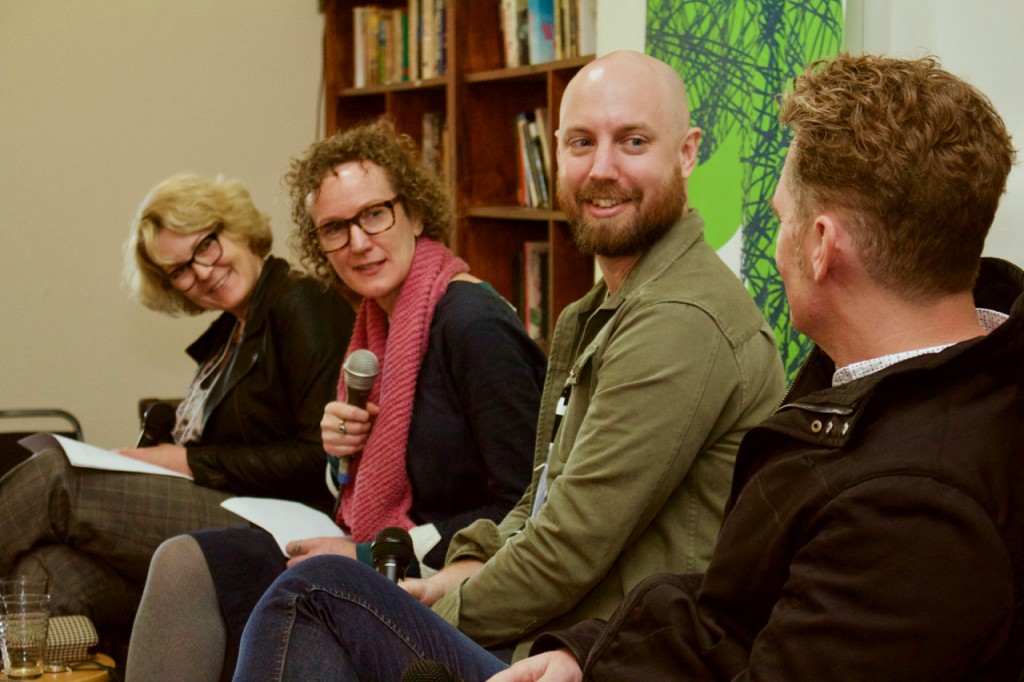Climate change is the crisis of this generation. Speaking at NSW Writers’ Centre’s Speculative Fiction Festival, Australian author James Bradley argued that as our defining social condition, the global environmental emergency provides the backdrop to literature written today.
“All fiction now is anthropocene fiction,” he said in response to a question concerning the shifting attitudes towards climate change in writing over the past few years.
Bradley recently authored the YA novel The Silent Invasion, depicting a future where space alien spores threaten to destroy life on earth. He was joined by fellow speculative fiction writers Daniel Findlay, Cat Sparks and moderator Jane Rawson on the panel.
While sci-fi has traditionally dealt with distant, often technologically oriented futures, the emerging cli-fi sub-genre, which incorporates post-apocalyptic and dystopian tropes, addresses the present day urgency of environmental degradation. The worlds it depicts feels much more like the current one we stand upon.
Like sci-fi, cli-fi holds a great potential to engage with activist narratives, where alternative “social and economic solutions” to real and imagined threats can be posed. Does speculative fiction draw guidelines on how to best navigate the future then, asked Rawson?
It’s a way to steer through denial and despair, Bradley answered. For him, writing is a tool used to fight against the disempowering nature of climate change and to not fall into the trap of being a “passive citizen.”
However, Sparks, who just released her debut novel Lotus Blue, said that while there is power in speculative stories. “It doesn’t have cultural resonance because no-one takes it seriously. Its power to deliver the message got overshadowed by its tropes.”
The panellists also discussed how they shape their dystopic worlds through the manipulation of language conventions, to envision how new forms of communication may emerge hundreds of years later.
Findlay released his debut post-apocalyptic novel Year of the Orphan earlier this year, in which scavengers try to survive in the brutal Australian outback Mad Max style. The dialect spoken in the novel stitches together a “pastiche” of languages, a vision he described as how “oral storytelling would sound like centuries from now.”
For his book The Silent Invasion, Bradley said it was very much about deliberately finding “a language that was stripped back and clean” to heighten the eerie atmosphere of the novel.
Speaking about the challenges and differences in world-building and the writing process, Sparks said that “you learn to play to your strengths.” Stories come to her visually: “it plays like a movie in my head.” On the other side of the spectrum, Bradley “works from the inside”, concerning himself with rhythm, feeling and texture.
Findlay is more pragmatic, describing how he has two documents for writing, one for ideas, and one for the actual story.
There are higher stakes involved in telling science fiction stories today, where the real enemy is no longer pegged on outer-space aliens but towards our own species. In a world where human actions accelerate rising sea tides and extreme temperature changes, speculative fiction is less concerned with creating the future than actually strategising ways to process our current times. It boils down to the question Bradley poses: “How do I make this make sense to myself?”
This recap written by NSWWC intern Amelia Zhou. The Future We Deserve: From sci fi to cli fi was a panel at the 2017 Speculative Fiction Festival.

